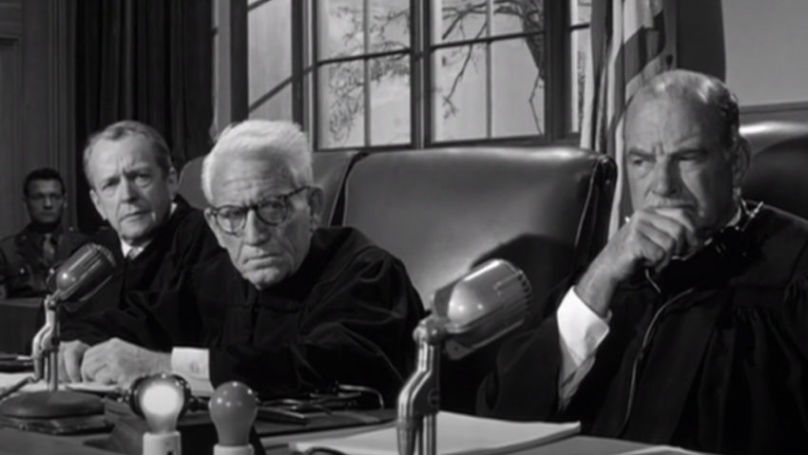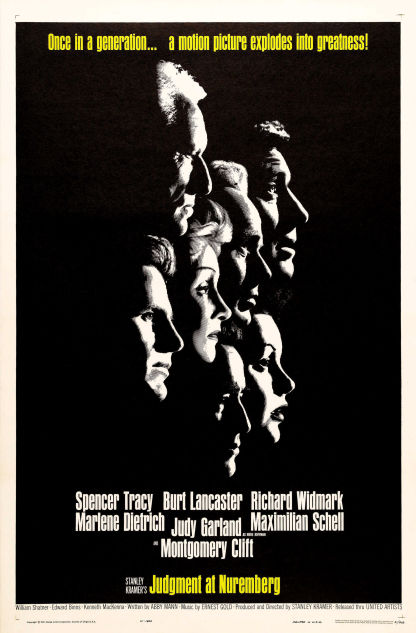What ought one to watch if one wants to know about Nuremberg? Which films best capture the essence of the tribunal? We continue with our series of recommendations from famed film aficionado Lydia Maslova, who has collected a unique list to accompany the “Nuremberg: Casus Pacis” project.
‘Judgment at Nuremberg’ (1961, USA)
Director: Stanley Kramer
Starring: Spencer Tracy, Burt Lancaster, Maximilian Schell, Marlene Dietrich, Montgomery Clift, Judy Garland and William Shatner.
This is a courtroom drama film where Stanley Kramer tells us about one of the “small Nuremberg trials” which took place in 1948. Spencer Tracy plays the lead judge on a three-judge Allied bench and in the dock are four distinguished lawyers who by carrying out unsafe trials, aided and abetted the Nazi regime. Chief among them is Ernst Janning played by Burt Lancaster, who is accused of condemning to death a Jewish man for having had sexual relations with a 16-year-old Gentile girl, a charge Janning knew to be false. He explains that, although he knew he was doing wrong, he went along with Hitler’s anti-Semitic zealotry out of a sense of patriotism. Meanwhile, the defence attorney Hans Rolfe, played by Maximilian Schell, argues that German jurists are not the only ones to have assisted the Nazi party by turning a blind eye to injustice and that there are many on the Allied side against whom the same charge may be levelled.

By 1948, there were many who were arguing that those “who were forced” to serve the Nazis - doctors, businessmen and judges - should not be tried. This film, therefore, gains important social and philosophical meaning which would have been lacking had it merely been about specific charges and, in turn, it becomes a debate about the rehabilitation of the very idea of justice, which had been so desecrated by the Nazis. The idea of a common responsibility remains valid today: fascism was not the product of a nation especially predisposed to it. When the blame is placed on a single malicious nation, this is the starting point for a new cycle of fascism.
























